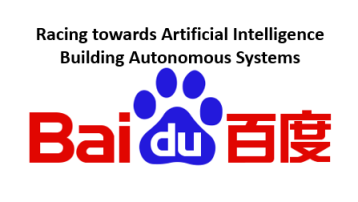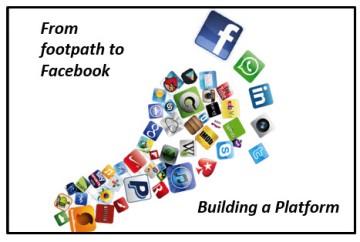In the latest update to its platform, Baidu says partners can access new obstacle perception technology and high-definition maps, among other features.  We are told that the company with the most data will win. To get the real edge it is to have and train algorithms that interpret the intelligence and here you need to understand the value of AI (Artificial Intelligence).
We are told that the company with the most data will win. To get the real edge it is to have and train algorithms that interpret the intelligence and here you need to understand the value of AI (Artificial Intelligence).
Now there is a significant “buzz” on AI at present but where it is really taking off is in China and one company needs to be followed is Baidu.
How Baidu is going about this is to build ecosystems that commercialize AI technology and then attract this ecosystem of partners and developers to accelerate AI into actionable knowledge.
Then we see the Autonomous Platform emerging……
Just released a further update
Chinese search engine giant Baidu is to spend 10bn yuan (£1.1bn; $1.5bn) on new driverless car projects over the next three years. The “Apollo Fund” will invest in 100 autonomous driving projects over the next three years, Baidu said in a statement.. The move is an attempt to catch up with US rivals by enlisting outside help.It now has 70 partners across several fields in the auto industry, up from 50 in July, it says
The launch of Baidu’s “Apollo Fund” coincides with the release of Apollo 1.5, the latest version of its open-source autonomous vehicle software. In the latest update to its platform, Baidu says partners can access new obstacle perception technology and high-definition maps, among other features”.
 I’ve been interested in what constitutes a “platform” and how platforms spawn and nurture ecosystems for quite some time. We’ve been exploring these ideas in this blog over the last few months.
I’ve been interested in what constitutes a “platform” and how platforms spawn and nurture ecosystems for quite some time. We’ve been exploring these ideas in this blog over the last few months. I have put some focus back on the platforms recently, as this is becoming a real imperative to understand the whole meaning and implications of platforms, with the necessary management they require, so as to enable us to rethink different business models for the future.
I have put some focus back on the platforms recently, as this is becoming a real imperative to understand the whole meaning and implications of platforms, with the necessary management they require, so as to enable us to rethink different business models for the future.